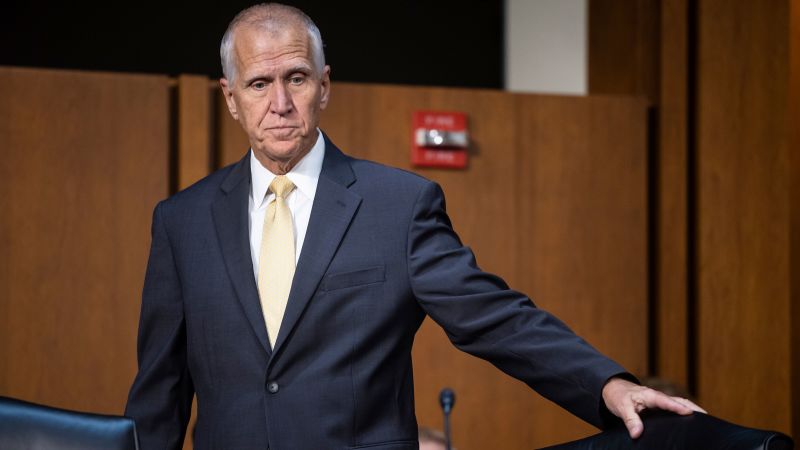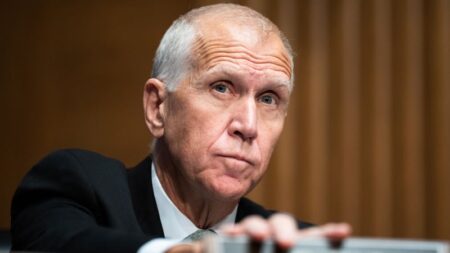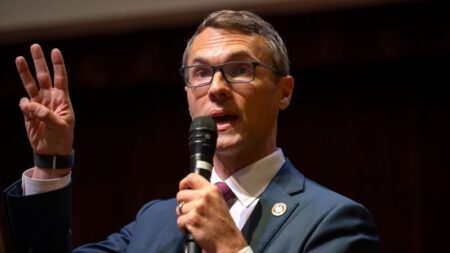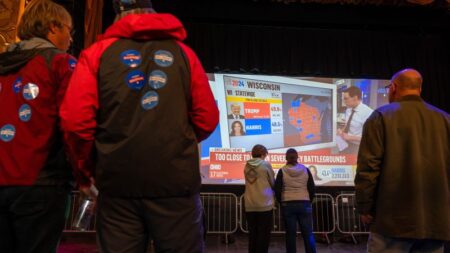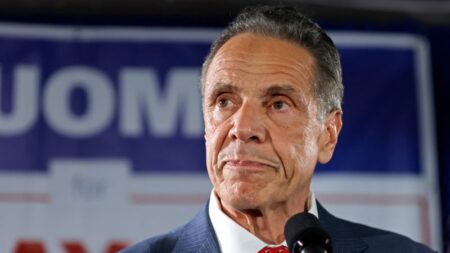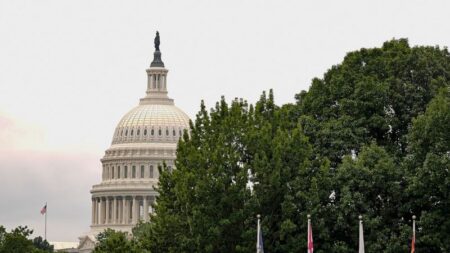The political arena is currently witnessing a heated advertising campaign with a critical piece of legislation, championed by President Donald Trump, hanging in the balance. The stakes are high as political advocacy groups and business interests funnel an unprecedented $35 million into efforts aimed at influencing pivotal members of Congress and their constituents. This significant expenditure reflects the urgency surrounding Trump’s landmark policy bill, which encompasses a range of objectives, including tax cuts and spending reforms.
Senator Thom Tillis from North Carolina, a prominent Republican figure, finds himself at the center of this political tempest. Facing pressure from both sides of the aisle, Tillis made the decision on Sunday not to pursue reelection in 2026. The conservative group Americans for Prosperity, part of the political network of influential megadonor Charles Koch, is heavily invested in the effort, spending nearly $2 million in critical media markets, including Charlotte and Raleigh-Durham. This backing illustrates the concerted effort to rally support for Trump’s tax cuts and their purported benefits for families across the nation.
In stark contrast, a Democratic-aligned organization named Unrig Our Economy launched its own campaign, dropping nearly $1 million to criticize Tillis for Medicaid cuts associated with the bill. One ad starkly warns, “Sen. Thom Tillis could vote to take away our health care and give tax breaks to billionaires.” This juxtaposition of campaigning strategies highlights the intense battle for public opinion, as both parties grapple with the implications of the proposed legislation.
The dynamics extend beyond Tillis; other Republicans in key districts are also jockeying for position as they head into midterm elections. These candidates face the challenge of appealing to voters who may not support Trump while simultaneously avoiding the ire of the President’s loyal base. Tillis’ announcement to forgo reelection came shortly after Trump publicly urged him to contest a primary challenge due to his reluctance to support a procedural vote on the “big, beautiful bill.” This exemplifies the tightrope that many Republican representatives are walking in today’s politically charged environment.
John Thomas, a Republican strategist, succinctly summarized the overarching concern among party members: “We so often hear of members concerned about their general reelection efforts, but that is all for naught if you can’t get through a primary.” The loyalty Trump commands among the Republican base is undeniable, and straying from his agenda incurs significant risks. With upcoming elections in the balance, representatives must maneuver carefully to maintain their constituencies while managing the expectations of their voters and the party at large.
Representative Don Bacon from Nebraska, another Republican from a swing district, voiced his concerns about the intense advertising blitz surrounding the legislation. Following the recent onslaught of negative ads claiming that he was cutting Medicaid, he emphasized the need to engage with voters honestly. “There’s a lot of goodness here, but we gotta talk about it and show the voters,” he remarked to CNN’s Manu Raju. His viewpoint signifies a broader sentiment among representatives striving to navigate their positions amid a barrage of political advertising.
In June alone, data indicates that various PACs and interest groups have collectively spent over $35 million on ads related to the bill, which includes critical elements of Trump administration policies concerning taxes, spending, and immigration. Notably, the advertising landscape is predominantly influenced by Republicans, who account for approximately half of this spending, while Democrats contribute a quarter and independent and business PACs contribute the remaining quarter.
Despite the overwhelming financial investment from these groups, a significant test looms as the sweeping bill faces further amendments and a final vote in the Senate. The House will also need to vote on this revised version after narrowly approving its own initial offering a few weeks prior. Additionally, a Trump-aligned group known as “Securing American Greatness” has emerged as a significant advertiser, spending over $7.7 million on ads to bolster support among House members.
As the legislative battle continues, the implications of the bill could resonate through the 2024 election cycle, further stoking tensions between party lines. The stakes remain elevated, mirroring the fragile balance of power as legislators deliberate over a matter of national significance, and the fate of the Trump-backed policy hangs in the balance.





